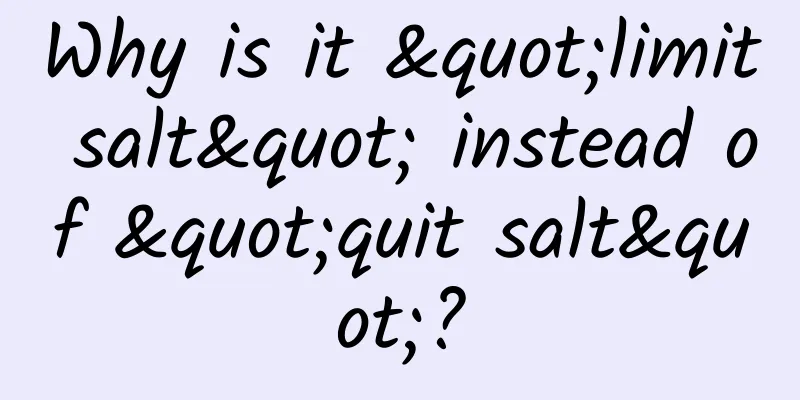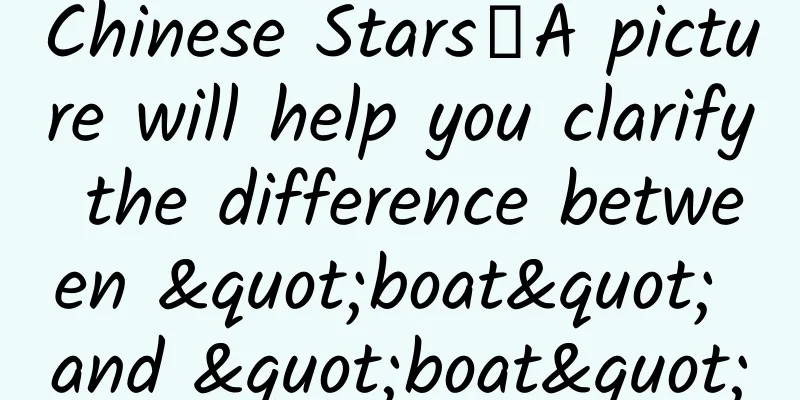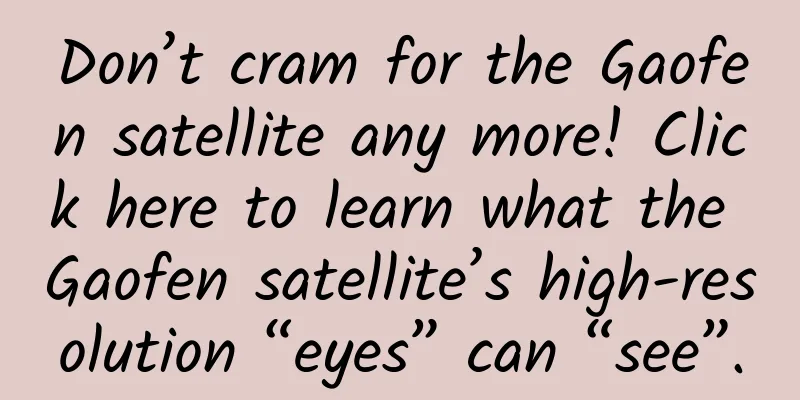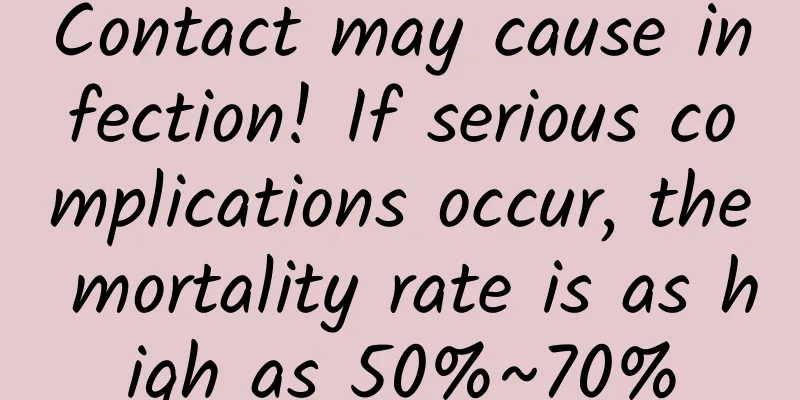Why is it "limit salt" instead of "quit salt"?

|
Author: Cui Yihui, registered dietitian Reviewer: Wang Junbo, Associate Professor and Doctoral Supervisor, Peking University Health Science Center A large-scale dietary group study covering 195 countries and regions around the world over a period of 27 years showed that Chinese people have a high salt intake. The "Survey on Nutrition and Health Status of Chinese Residents" showed that 81.6% of residents consumed more salt than the recommended intake (6 g per day) in the "Dietary Guidelines for Chinese Residents". Figure 1 Copyright image, no permission to reprint Many friends asked me: "Since salt is so bad, it causes a lot of harm to the body and is the most direct culprit for high blood pressure, wouldn't it be better not to eat it, or stop selling salt?" Of course, some friends also said to me: "I dare not go home for dinner. For the sake of their health, my parents hardly add salt when cooking. The food is really inedible. I feel like I'm almost 'life is hopeless'!" First of all, under the pressure of "Chinese people need to reduce salt intake", let me first talk about why nutrition science has never advocated quitting salt. Figure 2 Copyright image, no permission to reprint Among the seven necessities of life that our boss says we need every day, "firewood, rice, oil, salt, sauce, vinegar, and tea", salt should be considered the most basic necessity to maintain life activities, and it has four main functions. 1. The sodium ions in salt can regulate the balanced distribution of water in the human body, maintain the osmotic pressure inside and outside the cells, and allow various tissue cells to work in an orderly manner under a normal environment. 2. The chloride ions in salt will participate in the formation of gastric acid, promote the secretion of digestive juice, and increase appetite. 3. Salt can also regulate the pH value necessary for the action of pepsin, maintaining the pH balance in the body and the normal circulation of body fluids. 4. The sodium ions and chloride ions in salt also play a role in maintaining normal excitability of nerves and muscles. Therefore, if people do not eat salt at all, or excessively restrict salt intake, it will cause low sodium content in the body, which may cause loss of appetite, weakness in the limbs, dizziness, etc. in mild cases, and anorexia, nausea, vomiting, accelerated heart rate, weak pulse, muscle cramps, blurred vision, weakened reflexes, etc. in severe cases. When you are sick, you need to infuse normal saline (0.9% sodium chloride solution) in many cases. It is not a direct medicine for treating diseases, but it is used to help the body's tissue cells recover as soon as possible. Figure 3 Copyright image, no permission to reprint From the perspective of food, especially in the "bitter, spicy, sour, salty, and sweet" that Chinese food emphasizes, the salty taste brought by salt is the key to blending other flavors, and it has the title of "the ancestor of all flavors". On the tables of many gourmets, salt is actually an invisible secret weapon. If you don't put salt in cooking, even the delicacies from land and sea will be like chewing wax. The poem by Su Shi, a great writer in the Song Dynasty, "Is it because I heard Shao that I have forgotten the taste? Since then, I have eaten without salt for three months" describes the feeling of saltlessness and blandness. In a word, salt is not only an important condiment, but also an indispensable substance for maintaining normal growth and development of the human body. This is the original intention of eating "salt" in the process of evolution. We cannot quit salt because we are worried that "too much salt will lead to loss". Not advocating a complete salt abstinence does not mean that we do not need to be vigilant to limit salt intake for health, especially for patients with hypertension. The "Dietary Guidelines for Chinese Residents" recommends that healthy adults should consume less than 6 g of salt per day, and patients with hypertension should consume less than 3 g of salt per day. Infants under 1 year old should try to avoid foods with high salt content or condiments. Figure 4 Copyright image, no permission to reprint If you want to eat salt in a healthy way, you can’t just cook without adding salt. The following 4 suggestions can help you limit salt in a healthy way in your daily life. 1. Pay attention to hidden salt : soy sauce, chicken essence, MSG and other seasonings, seafood, braised meat, bacon, pickles, sausages, ham and other pickled foods, processed foods, etc., contain a lot of hidden salt, so try to eat less or no salt. 2. Try to choose seasonal and fresh food for cooking : the fresher the ingredients are, the less seasoning is needed, and the taste of the ingredients themselves will be delicious. 3. Use natural seasonings : soy sauce, MSG, chicken essence, etc. will increase salt intake. It is recommended to use natural herbal spices such as black pepper, turmeric powder, basil, basil, rosemary, etc. for seasoning. It can not only make up for the monotonous taste caused by less salt, but also make the dishes healthier! 4. Reduce the number of times you eat out : Dietary nutrition always requires a balance, not extremes. This applies to sugar, salt, and all nutrients. To be healthy and delicious, you need wisdom and relevant nutritional knowledge. |
>>: Can eating chili peppers speed up the recovery of oral ulcers?
Recommend
Five principles for app survival and growth
[[249822]] What do users want most? How to build ...
99% of companies ignore the importance of embedding chicken soup in their products
First of all, a good product must be in line with...
Experience | How to do user operations well
Operations is actually a very profound subject, j...
Surface mini was killed by Microsoft at the last minute
Microsoft held a new product launch conference in ...
2020 Hubei Provincial College Entrance Examination Xiangyang Liberal Arts and Science Champions: Zhu Caiye, Yue Kun
In the early morning of July 23, the channel for ...
How to turn off the WeChat mini program function? How to log out of WeChat Mini Program?
How to turn off the WeChat mini program function?...
From love to hate: Why did Microsoft abandon Nokia and WP brands?
After Microsoft completed the acquisition of Noki...
Not only can it make rice more delicious, but it can also create an "ocean ranch". There are so many surprises about iron that you don't know!
1. Iron and life from idioms Iron is not only a m...
From brainstorming to implementation, how should we operate and promote events?
A senior who works in operations said that event ...
Why is private domain traffic being snapped up this year?
Quest Mobile data shows that the scale of monthly...
Analysis of 4 aspects: How to operate?
How to operate it? Where is the output value of t...
How much does it cost to attract investment for the Zigong Tea Mini Program?
What is the investment cost of Zigong Tea Mini Pr...
43 apps including WeChat, Alipay, and Douyin will undergo "aging-friendly" transformation
[[360191]] According to domestic media reports, L...
Affected by the epidemic, domestic smartphone shipments in Q1 may drop by 30%
The ongoing outbreak of the novel coronavirus is ...
There are many pitfalls on the road to treating hair loss. Why is it so difficult to grow hair?
Author: Zhang Jianzhong, Chief Physician, Peking ...









